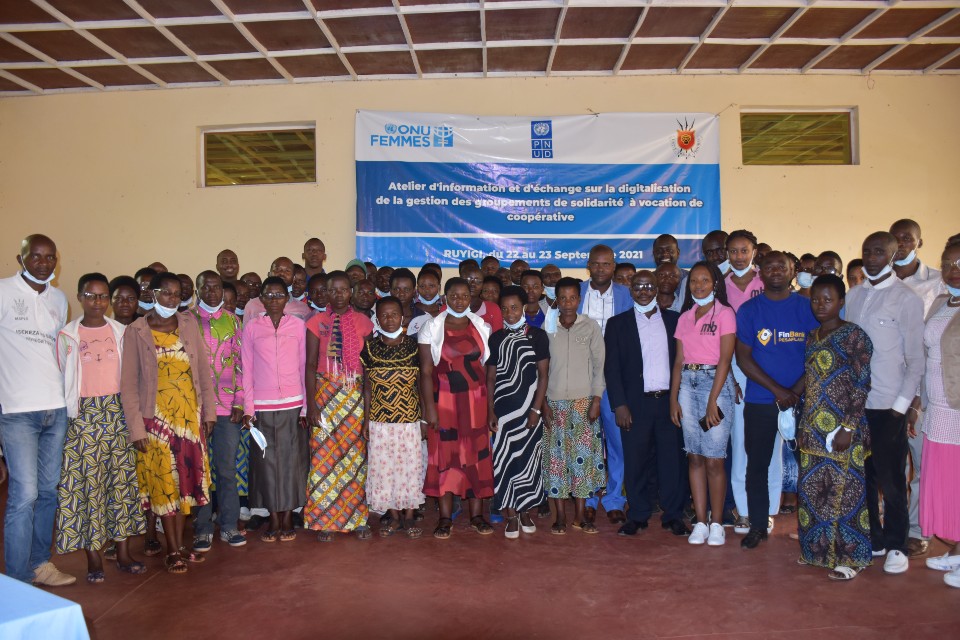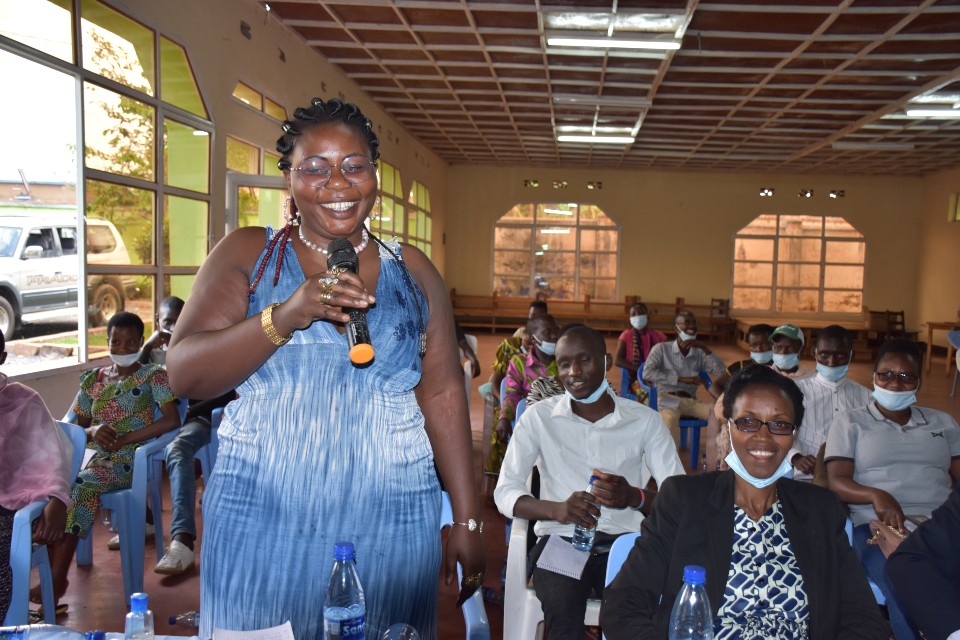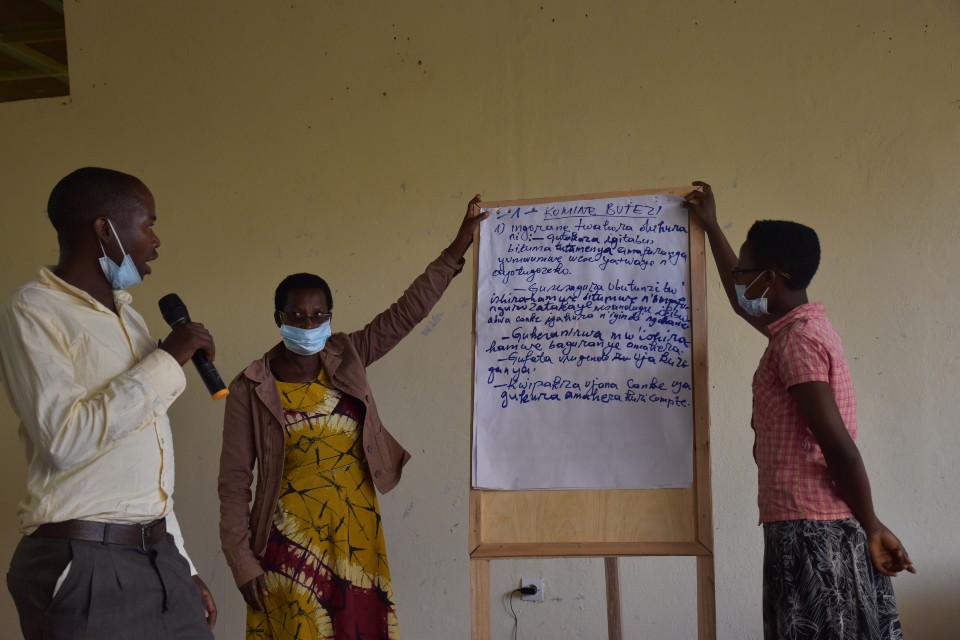Burundi: UN Women strengthens usage of digital management for young girls and boys in cooperative groups
Date:
Cooperative groups in Burundi are multiplying quickly at the community level. They contribute to building resilience by giving financial and social autonomy to less privileged segments of the population, especially youth and women, by helping them save and access small affordable loans. By 2020, UN Women supported the formation of about 3,000 cooperative groups with 900,000 women and girls. This initiative stemmed from concern for a safe environment for women and girls to save money, develop income generating initiatives and access small loans.

These groups are confronted with a series of problems slowing down expansion and limiting their credibility with financial institutions. These include ineffective security measures that encourage theft, fraud, misappropriation and mismanagement of members' savings.
The UN Women office in Burundi, in collaboration with the Ministry of East African Community Affairs, Youth, Sports and Culture, on September 21 to 23, hosted more than 60 girls and boys, members of the Ruyigi cooperative groups, to an information and exchange session on digital management. UN Women brought in digital financial service providers from banks, microfinance, and telecommunication companies to present products. Young people from hard-to-reach rural areas learned about different mobile financial services launched by private telecommunication companies and some financial institutions.

The digital management of cooperative groups enables members to increase credibility with financial institutions and benefit from the advantages they offer such as credit and other types of loans. UN Women delegate Willy Ndayishimiye called on banks, microfinance and telecommunication companies, NGOs and local associations to promote the use of new technology in managing solidarity groups. “It provides an answer to the challenges of security of the funds saved, rational management of solidarity group funds, increased opportunities for business growth for solidarity group members,’’ he said.
Participants welcomed training on new information and communication technology in managing cooperative groups. "The digital management of our groups will help us to solve a whole range of problems that we are confronted with on a daily basis: the loss or theft of registers in which members' contributions are recorded, cases of embezzlement of saved funds or other kinds of fraud,'' said Médiatrice Nsengiyumva, 28 years old.
"We are going to share this information with the members of our groups so that they understand the urgency of moving from paper registers to digital registers in the management of our groups,'' a group from Bweru commune concluded in their group presentation.

''This will reduce expenses related, in particular, to the transport of goods, with all the risks that this entails,'' one group said after learning they would be able to sell their crops online.
Adviser to the Minister of East African Community Affairs, Youth, Sports and Culture, Gaëtan Ndayikengurukiye, thanked UN Women for its contribution to the socio-economic empowerment of young girls and boys by supporting cooperative groups and instructing them how to digitize management.
This exchange session on digitization of management of cooperative groups is part of the "Joint Project for the Socio-Economic Empowerment of Girls/Boys and Adolescents" implemented by UN Women, UNICEF, UNDP and UNFPA in Ruyigi, with UNDP TRAC funding.
This project will contribute to the economic empowerment of at least 7,500 young boys and girls in Ruyigi, between the ages of 15-35, to become agents of change in their communities.